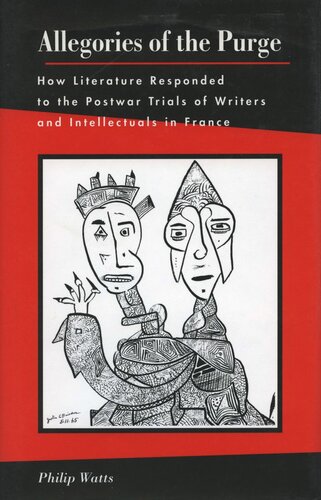

Most ebook files are in PDF format, so you can easily read them using various software such as Foxit Reader or directly on the Google Chrome browser.
Some ebook files are released by publishers in other formats such as .awz, .mobi, .epub, .fb2, etc. You may need to install specific software to read these formats on mobile/PC, such as Calibre.
Please read the tutorial at this link: https://ebookbell.com/faq
We offer FREE conversion to the popular formats you request; however, this may take some time. Therefore, right after payment, please email us, and we will try to provide the service as quickly as possible.
For some exceptional file formats or broken links (if any), please refrain from opening any disputes. Instead, email us first, and we will try to assist within a maximum of 6 hours.
EbookBell Team

5.0
88 reviewsThis book is about four writers—Sartre, Eluard, Blanchot, and Céline—whose works confront and respond to the purge of collaborationist intellectuals in postwar France. It investigates how their writing argues for or against the different positions outlined during the purge and how it reflects or distorts the competing theories about literature to emerge from the trials. These writers were themselves involved in the trials to varying degrees: Céline was accused of treason, though eventually condemned on a lesser charge; Eluard, one of the leading Resistance poets and a Communist, published in the clandestine Resistance press and devoted a number of his poems to condemning collaborators; Sartre’s theory of committed literature reiterates the theme of the writer’s responsibility as presented during the trials; as for Blanchot, if his work never directly comments upon the purge, its arguments for the autonomy of literature are both a response to Sartre and a commentary on what Blanchot called the “trial of art.” In their reactions to the purge, these writers mobilized a number of discourses, ranging from the historical, economic, and literary to the sexual, medical, and corporeal. To understand their views on the trials, it is useful to read their texts as allegories of the purge. At one point or another they all speak about the purge through a series of metaphoric substitutions maintained through an extended narrative—whether this narrative is a critical essay, a novel, or a collection of poems. The texts also give the reader a code for reading them allegorically, and this code is the purge archive, whose records, debates, and arguments reshaped the way writers understood their craft.